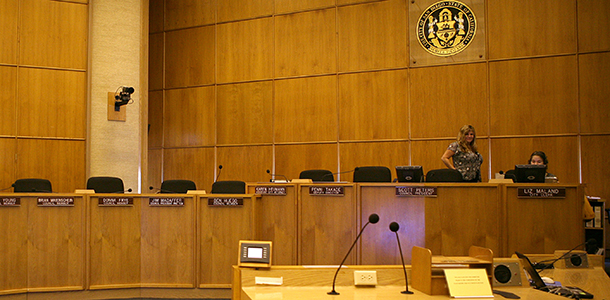
(Photo Credit: Bengt Nyman/Flickr)
For more than 40 years, political attorneys and campaign treasurers have worked to keep their clients in compliance with California’s Political Reform Act, the law created in 1974 to oversee campaign finance, ethics and lobbying. While the law applies the same to those campaigning for school board as it does to those running for statewide offices, the reality is that those two groups often have access to widely differing financial resources.
That disparity can be amplified by the complexities, contradictions and redundancies of the current PRA.
The Political Reform Revision Project (PRARP), launched this spring by the California Fair Political Practices Commission (FPPC), in partnership with California Forward and the law schools at UC Davis and UC Berkeley, seeks to clarify and modernize the PRA to increase readability and thus, ease in compliance.
“Simplifying [the PRA] would most benefit the local candidates,” said Rebecca Luby, a partner at Political Finance Solutions, Inc., a full service campaign finance firm in Sacramento. “The ones who have the money to hire a team are doing fine.”
Those with substantial cash assets can hire attorneys and professional treasurers to navigate the PRA as Luby suggested, but those without significant means have to rely on public resources and good intentions to keep them in compliance. Often candidates for smaller, local offices recruit friends and family to help with treasurer tasks and do their best to understand the requirements of the PRA on their own.
When question arise, they reach out for clarification from the Fair Political Practices Commission, which estimates it receives around 15,000 to 20,000 requests every year. At the other end of the divide are organizations and individuals with the resources to hire attorneys, professional treasurers, and ethics advisors.
Patrick Whitnell, general counsel at the League of California Cities applauds the revision project efforts. “For someone just coming in to service, a lot of this is counter-intuitive…the PRA and other conflict of interest laws are written in such a way that it is not intuitive,” said Whitnell.
A long-time lawyer who has served as a city attorney, Whitnell sees benefit in simplifying the PRA for both those who are regulated and for those who help guide newly elected or appointed office holders. During his tenure as city attorney, Whitnell was often charged with explaining PRA and other regulations to new city council members. A modernized PRA could assist in such efforts by using plain language and streamlining the content in a way that is “understandable to someone who’s not a lawyer or focused on conflict of interest or ethics issues” he explained.
“Those new to the process engage in behavior normal for a private person” that can get them into trouble with the FPPC said Whitnell. Take, for example, a newly elected official who goes to lunch with a long-time friend who happens to be a property developer. A private citizen could enjoy the meal and appreciate that a friend picked up the check. An elected official, however, must avoid any perception of a conflict of interest and can’t always allow an old friend to buy lunch without considering all the restrictions on public officials. The shift in behavior from private citizen to public servant can be eased by a more readable set of laws.
Providing examples of inconsistencies between forms and regulations, Luby explained how the hard-to-understand PRA can put a damper on democracy. In her work with groups that recruit candidates to run for office, the invitation to run is consistently turned down by people who are intimidated by seemingly overwhelming regulations.
“We need more candidates because that provides more choices,” said Luby. Many public office holders follow a path from school board to city council to state assembly and it can take a lot to make that first run for office. Ideally, she’d like to see a “good group of people running at all levels” and she believes clarity in the law can contribute to that future.
In the meantime, Whitnell’s organization is among those that provide education and training on complying with the PRA and other conflict of interest laws and he welcomes the potential changes. “It’s a worthy goal to undertake,” he said.

